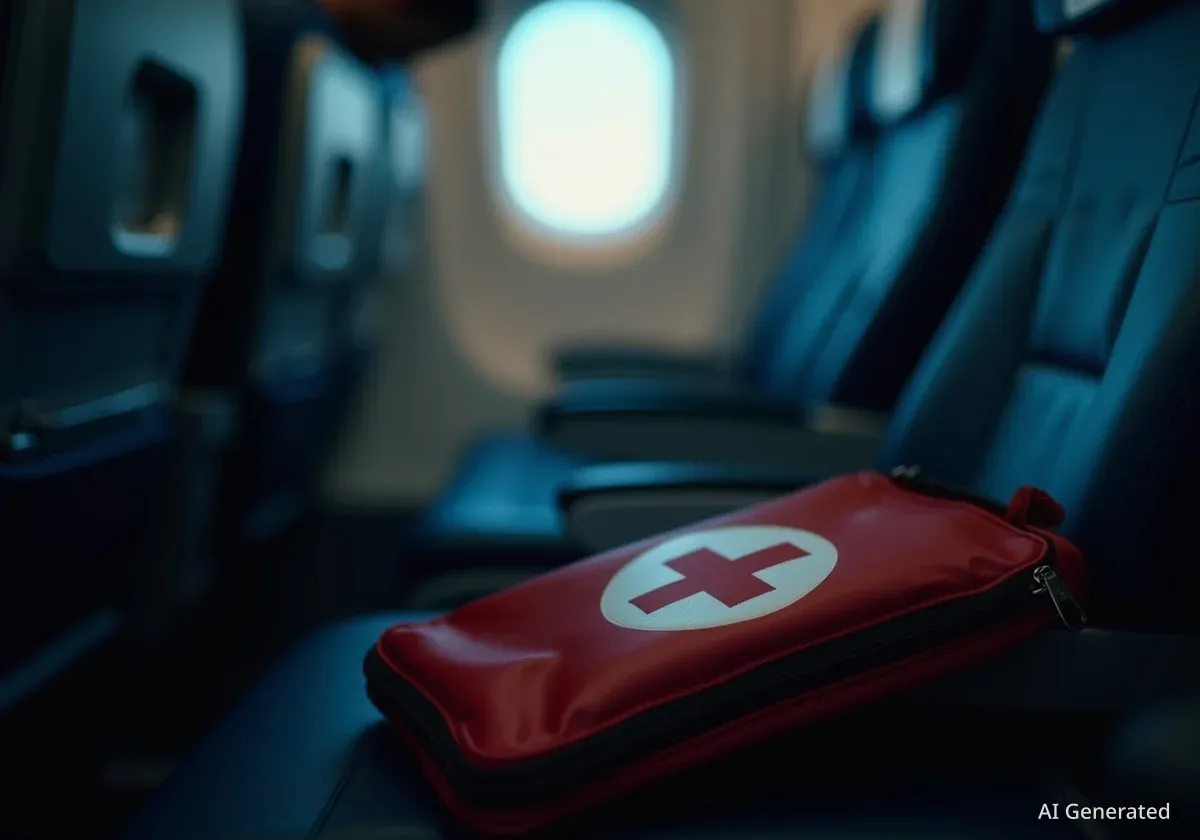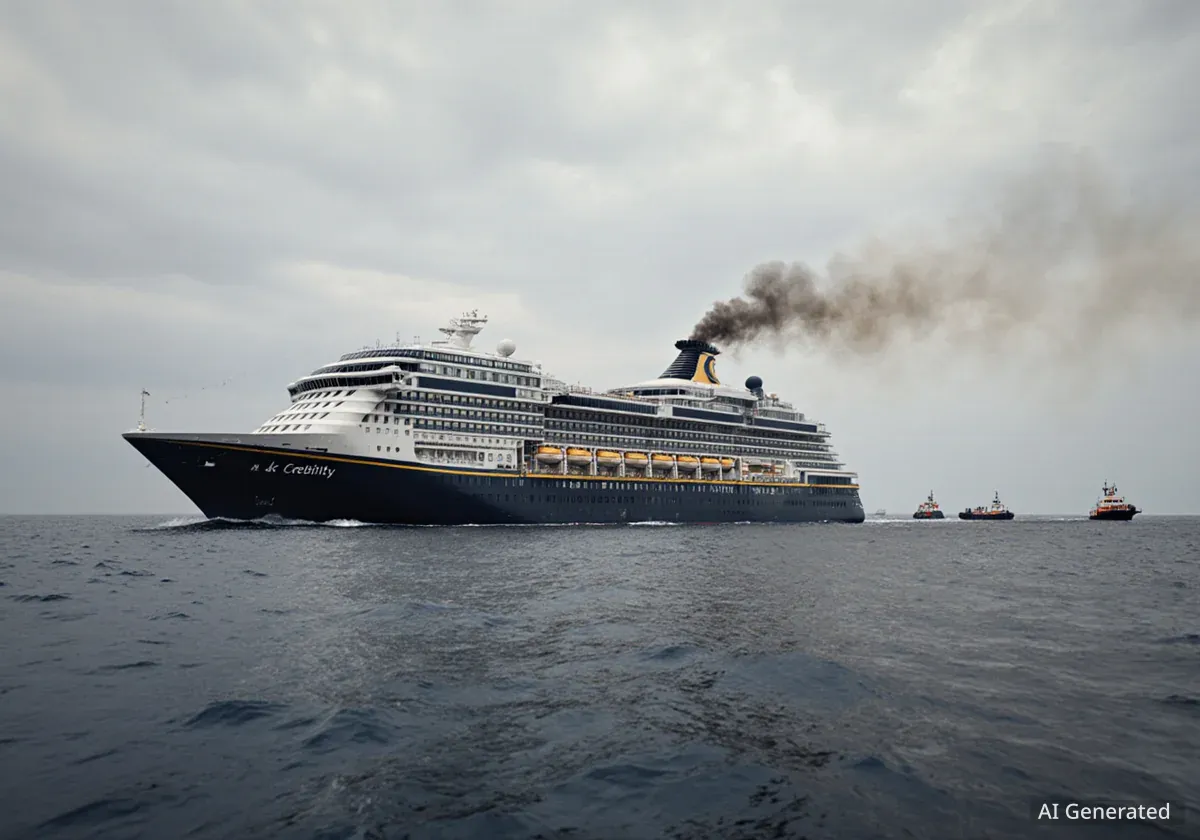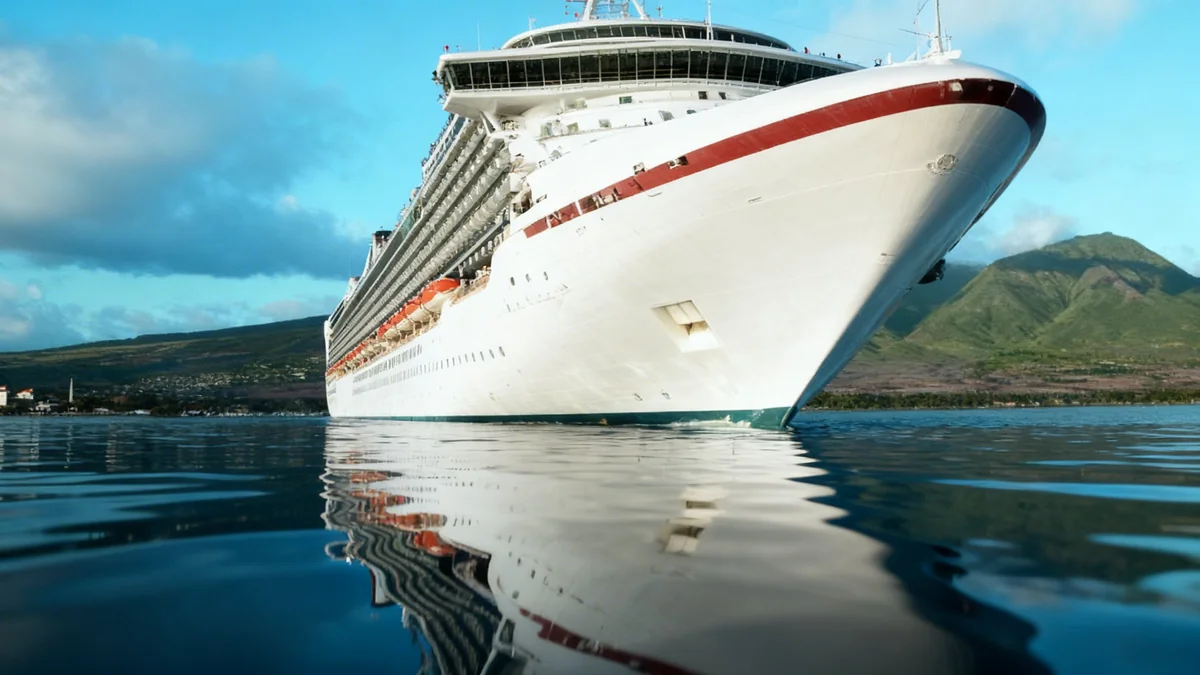A California jury has ordered American Airlines to pay $13.2 million to a passenger who suffered a severe stroke during a transatlantic flight in November 2021. The ruling found that the airline's crew failed to follow proper medical procedures, contributing to the passenger's life-altering injuries. The passenger, Jesus Plasencia, now requires constant care and is unable to speak, write, or walk.
Key Takeaways
- American Airlines must pay $13.2 million in damages and expenses.
- A jury found the airline 72.5% responsible for the passenger's injuries.
- The crew's failure to follow medical protocols was deemed an 'accident' under the Montreal Convention.
- The passenger suffered a stroke mid-flight and now requires 24-hour assistance.
Stroke Incident During Flight to Madrid
The incident occurred on November 8, 2021. Jesus Plasencia and his wife, Marcela Tavantzis, were traveling from San Francisco to Madrid with American Airlines. Their journey included a layover in Miami.
During the second leg of their trip, aboard a flight from Miami to Madrid, Mr. Plasencia experienced initial symptoms. Before the plane departed, he briefly felt unwell. He reported a sudden inability to pick up his phone and began speaking incoherently. His wife, Marcela, immediately suspected a stroke and alerted a flight attendant.
Initial Concerns Before Takeoff
Marcela Tavantzis, Mr. Plasencia's wife, stated that she believed her husband was having a stroke before the flight took off. She informed a flight attendant about his symptoms. However, by the time crew members arrived, Mr. Plasencia seemed to recover and had no memory of the event.
American Airlines stated that the flight attendant offered medical assistance and the option to deplane. The couple reportedly declined these offers. The flight attendant also contacted the Captain, who spoke with Mr. Plasencia. The Captain concluded there was no reason to remove the couple from the flight, despite warnings that medical assistance would be difficult over the Atlantic.
Crew Actions During the Flight
Approximately 90 minutes into the flight, a flight attendant observed Mr. Plasencia stumble in the aisle while going to the bathroom. The lawsuit claimed this was an indicator that he was experiencing a stroke and needed urgent medical attention. However, the flight attendant did not intervene at this point.
Concern among the crew only arose when the aircraft was about one hour away from landing in Madrid. At this time, flight attendants noticed Mr. Plasencia was drooling. They then requested assistance from any off-duty medical professionals on board. Several doctors responded to the call.
"It was only when the plane was around one hour away from landing that the flight attendants became concerned when they noticed Jesus was drooling," the legal documents highlighted.
The off-duty doctors quickly assessed the situation and suspected Mr. Plasencia was suffering a stroke. They requested emergency responders to be ready to meet the aircraft upon its arrival at Madrid Barajas Airport. Mr. Plasencia was then rushed by ambulance to the Ramon y Cajal Hospital.
Life-Altering Injuries
By the time Mr. Plasencia reached the hospital, he had already sustained severe, life-changing injuries. He remains unable to speak, write, or walk. He requires round-the-clock assistance for basic daily activities such as bathing, eating, and using the toilet. His condition underscores the critical importance of timely medical intervention.
The Legal Proceedings and Verdict
Mr. Plasencia and his wife filed a lawsuit against American Airlines under Article 17 of the Montreal Convention. This international treaty holds airlines liable for passenger injuries caused by an 'accident' during an international flight. The central question for the jury was whether the flight crew's actions constituted an accident or if the couple's own actions were primarily responsible for the injuries.
American Airlines' Defense
American Airlines argued that Marcela Tavantzis had confided in family members via text message about her suspicion of a 'mini-stroke' before Flight AA-68 departed. However, the airline claimed she never shared this specific information with the crew. Without clear evidence that Mr. Plasencia was having a stroke, the airline's attorneys contended that 'minor deviations' from internal policies did not qualify as an 'accident' under the Montreal Convention.
- Airline's Argument: Marcela did not explicitly inform the crew about a suspected 'mini-stroke.'
- Airline's Claim: Minor policy deviations do not constitute an 'accident' without clear evidence of a medical emergency known to the crew.
Jury's Decision and Damages
A Northern California jury ultimately rejected American Airlines' argument. The jury found that while Mr. Plasencia's and his wife's actions contributed to his injuries, the crew's deviations from American Airlines' established policies did amount to an 'accident' under the Montreal Convention. As a result, American Airlines was found 72.5% responsible for Mr. Plasencia's injuries.
The jury awarded significant damages to cover Mr. Plasencia's ongoing care and suffering:
- Future Medical and Caregiving Costs: $6.58 million
- Future Mental Anguish and Suffering: $3.2 million
- Past Mental Anguish: $800,000
- Past Medical Costs: $699,861
Additionally, the jury awarded Marcela Tavantzis $1 million for loss of companionship. The total sum awarded reflects the profound impact of the incident on both Mr. Plasencia and his family.
Understanding the Montreal Convention
The Montreal Convention is an international treaty that governs airline liability for international passenger travel. Article 17 specifically addresses airline liability for passenger injury or death caused by an 'accident' on board an aircraft or during embarkation or disembarkation. This case highlights how crew actions, or lack thereof, can be interpreted as an 'accident' in a legal context, even if not immediately apparent at the time.
This verdict underscores the importance of flight crews adhering strictly to medical emergency protocols. It also highlights the potential legal consequences for airlines when such procedures are not followed, leading to passenger harm. The decision sends a clear message about airline responsibility for passenger well-being during international travel.





